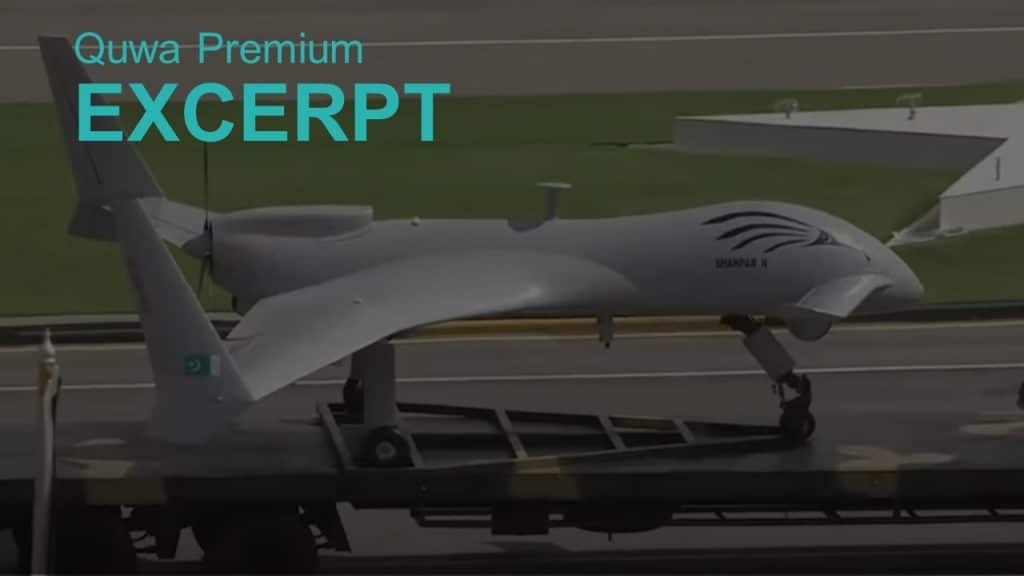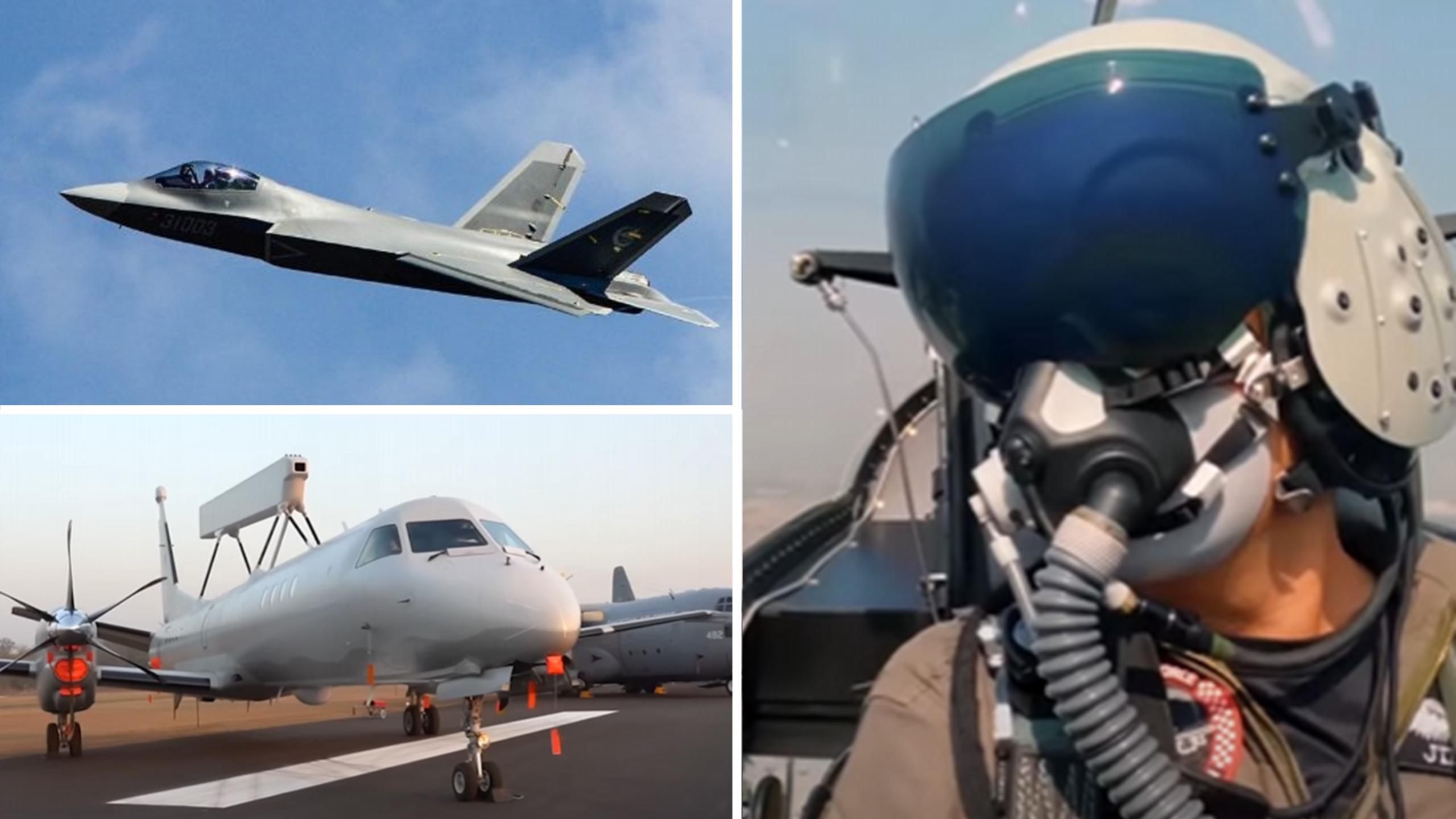Currently, Pakistan is actively developing new medium-altitude long-endurance (MALE) unmanned aerial vehicles (UAV) across two state-owned entities (SOE), the National Engineering and Scientific Commission (NESCOM) and Pakistan Aeronautical Complex (PAC).
The NESCOM design is the Shahpar-II, which Pakistan’s Strategic Plans Division (SPD) revealed on March 23 during the annually-held Pakistan Day parade. The Shahpar-II is an evolution of the Shahpar, which is the first UAV that was locally designed, developed and manufactured in Pakistan. The Shahpar-II was likely under development since at least 2017, potentially earlier.
The Shahpar-II builds on the same general design template of its predecessor, but it is a larger aircraft and exhibits a number of noticeable changes. The most noticeable of these changes is the addition of an area in the fuselage for a satellite-communications (SATCOM) terminal.
According to Global Industrial Defense Solutions (GIDS), which is marketing the Shahpar-II, the MALE UAV has a flight ceiling of 20,000 ft, endurance of over 14 hours, and data-link range of 300 km. Since GIDS is looking to export the Shahpar-II, these are likely baseline specifications. For example, Pakistan could use SATCOM to achieve a longer, beyond-line-of-sight (BLoS) data-link range.
That said, based on these specifications, the Shahpar-II seems to be similar in size and capability to the Turkish Bayrkatar TB2. Currently, it seems that Pakistan is slating the Shahpar-II as mainly an intelligence, surveillance, reconnaissance, and target acquisition (ISTAR) asset. However, it is certainly large enough to carry small air-to-surface munitions, should Pakistan opt for it.
On the other hand, PAC’s MALE UAV, which has been in development since at least 2017, is now confirmed to be an MQ-1C Gray Eagle or Anka-A-sized drone. This would be the largest drone (or aircraft in general) to have been designed and developed in Pakistan to-date.
According to a catalogue published by the Defence Export Promotion Organization (DEPO), the PAC MALE UAV will have a maximum take-off weight (MTOW) of 1,596 kg.[1] It will have a payload capacity of 350 kg distributed across four hardpoints. It will use a 200 hp engine which, interestingly, is the same output as the Lycoming IO-360-A1B6 used by the Super Mushshak. However, it is unclear if it is the same engine or, as importantly, if Pakistan would use that engine to power the production-ready drone.
Thus far, it seems that the Shahpar-II reached a production-ready state, hence its showcase at the Pakistan Day parade and entry as an exportable product under GIDS. The PAC MALE UAV is still under development, but that is not surprising considering how it is a more complex aircraft. For reference, it had taken Turkey five years from the time it flew the Anka-A to have an operationally-ready version in the Anka-S.
That said, PAC is certainly at the stage of at least manufacturing a prototype of its MALE UAV. Footage of its Aircraft Manufacturing Factory (AMF) shows the presence of at least one jig set-up for the drone…
End of Excerpt 500/1,177 words)
You can read the complete article by logging in (click here) or subscribing to Quwa Premium (click here).
Need More Info on Pakistan’s Drone Program? See Below for the Latest News and Insights:
- Pakistan Takes Delivery of CH-4 UAVs from China
- Drone Development: How Pakistan Can Learn From Turkey
- Pakistan’s UAV Development, Deployment, and Future
- Pakistan Signs MoU With Havelsan to Develop Sub-Systems for UAVs.
- Project AZM: The Expansion of Pakistan’s Drone Program
[1] Defence Export Promotion Organization (DEPO). Catalogue for Pakistan Aeronautical Complex. URL: http://depo.gov.pk/download/catalogue/public/PAC.pdf





